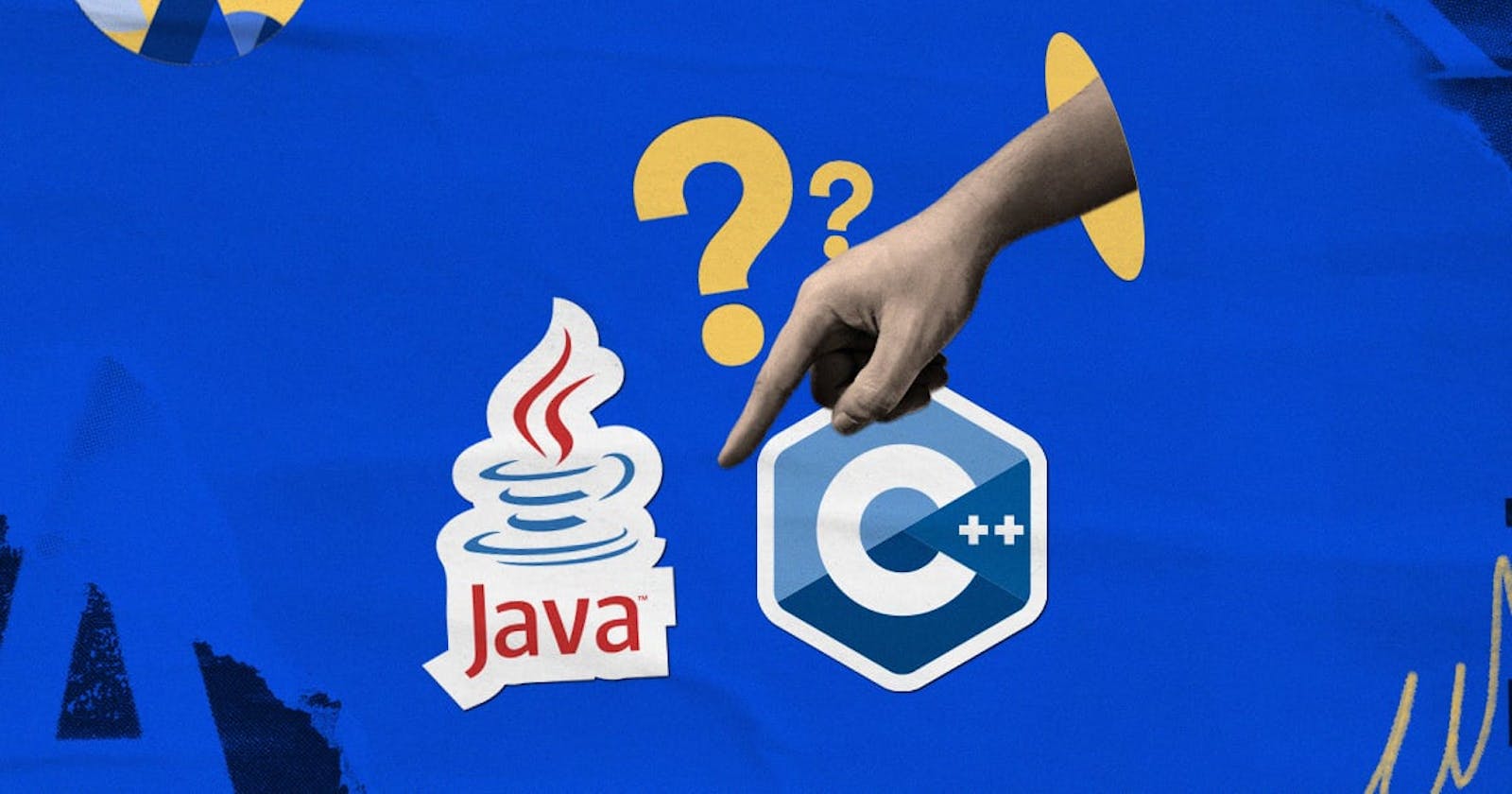Hello Guys! Are you going to start coding or You are in your First Year of College and are not familiar with any programming language and don't know which language to choose, don't worry I have got you covered in this Article.
There are plenty of programming languages in the world but for beginners, the best two programming languages are JAVA and C++. Both languages provide a better understanding of the basics of the programming field. Now what to choose as a starter, let's understand this by comparison of both languages.
C++
C++ was developed by Bjarne Stroustrup at Bell Laboratories over a period starting in 1979. Since C++ is an attempt to add object-oriented features (plus other improvements) to C, earlier it was called “C with Objects”. As the language developed, Stroustrup named it C++ in 1983. The name C++ suggests “C incremented” (recall the ++ is an increment operator of C).
C++ was made available outside Bell Laboratories in 1985. The first commercial C++ compiler, Cfront, was released in 1985. It was only a front-end compiler for C. The American National Standard Institute (ANSI) formed a committee for (precise description of computer language) C++, in 1989. The first draft standards were published in 1995.
JAVA
Java is an object-oriented programming language created by James Gosling and his team at Sun Microsystems (which has since been acquired by Oracle) in the early 1990s. James Gosling developed this language to create a new language that would allow consumer electronic devices to communicate with each other.
The difference between the way Java and other programming languages worked was revolutionary. Code in other languages is first translated by a compiler into instructions for a specific type of computer. The Java compiler instead turns code into something called Bytecode, which is then interpreted by a software called the Java Runtime Environment (JRE), or the Java virtual machine. The JRE acts as a virtual computer that interprets Bytecode and translates it for the host computer. Because of this, Java code can be written the same way for many platforms (“write once, run anywhere”), which helped lead to its popularity for use on the Internet, where many different types of computers may retrieve the same Web page.
C++ and Java: The Differences
There are many differences between Java and C++, some more nuanced than others. C++ and Java differ in their platform dependency, memory management, and use of classes.
C++ is platform dependent and needs to be compiled on every platform. | Java is platform-independent. Once it’s compiled into bytecode it can be executed on any platform. |
C++ requires manual memory management. | Java’s memory management is system-controlled |
C++ does not have support for documentation comments. | Java has built-in support for comments which allows developers to provide documentation within their source files. |
C++ is procedural and object-oriented. | Java is a pure object-oriented programming language. |
C++’s source code, on the other hand, has no association with filenames. | Java’s source code uses file names as classes, so file names should match any classes. |
C++ plays nicely with other programming languages. C++ is built on C and is compatible with most high-level programming languages. It’s easy to create patches or supplement pieces of client-side code with C++. | Java is not compatible with other languages, despite being inspired by C and C++. |
C++ vs. Java: Similarities
C++ and Java have a few similarities. These similarities are more relevant to a developer using the language than a client looking for a developer. You should generally look for a developer who excels in their language of choice, but the similarities between languages are useful should you find a developer you like to work with and need to edit code in a different language.
Syntax
Looping structures, classes, defining variables, and conditional operators are very similar in both languages. This makes it easy for developers to work cross-platform should they have several projects that use both languages.
Entry points
When your program starts, the compiler or interpreter looks for where it needs to begin execution. Both Java and C++ look for the “main” entry point.
Object-oriented
The idea of object orientation is that the languages use classes that represent components of your program. Each class then contains methods and properties that define it. Both C++ and Java are object-oriented languages, which makes your program much more modular so you can reuse code for other programs.
What to choose as a Beginner?
Now we know a decent amount of things about JAVA and C++. Now to choose a language between these two as your first language is completely dependent on what you what to become. For example, if you want to become an Android Developer then you should go with JAVA and if you want to become a Software developer or hardcore Backend Developer, or Game Developer then you should go with C++(Note: Apart from the mentioned things there are lot more other things where JAVA and C++ are used). If you haven't yet in which field you want to go, but only want to learn to code then you can go with C++ because C++ is both a Procedural and Object Oriented Programming Language. On the other hand, JAVA is a fully Object Oriented Programming Language so C++ provides an understanding of both things. If you want simple and easy syntax then you can go with JAVA. All the best for your Coding journey. Go Code!........🙌😁

